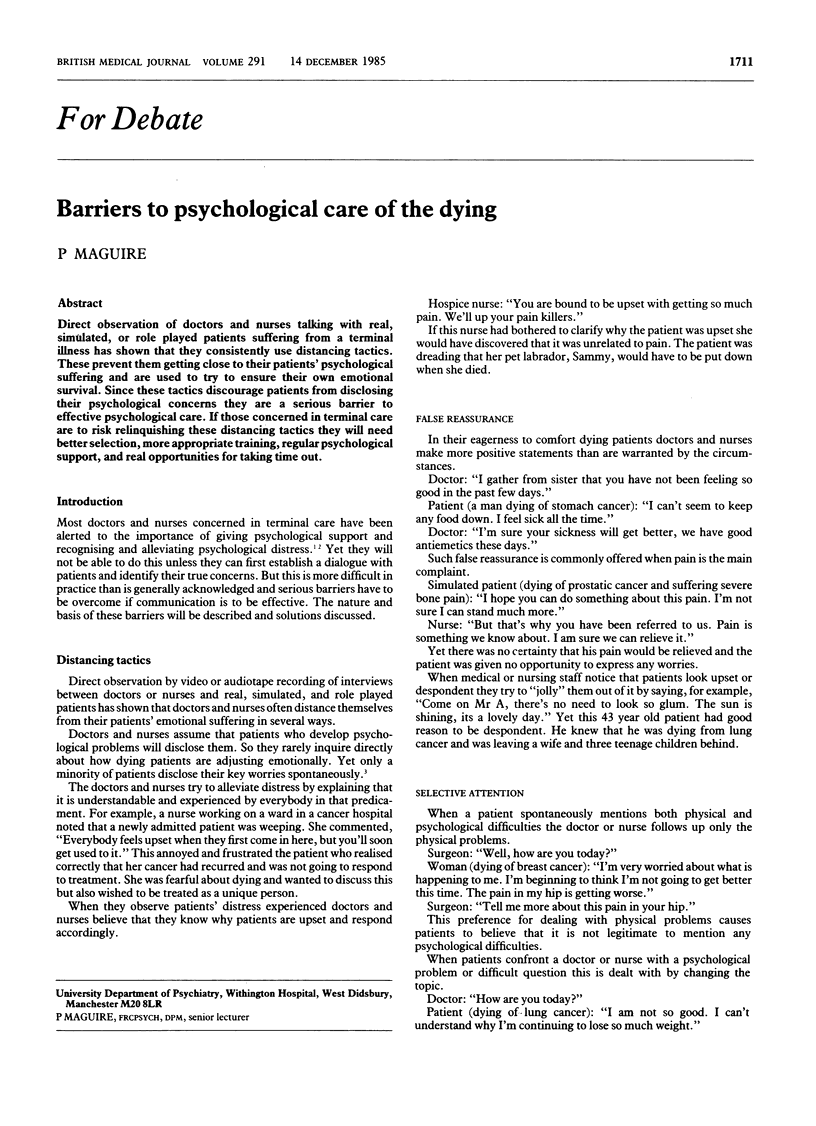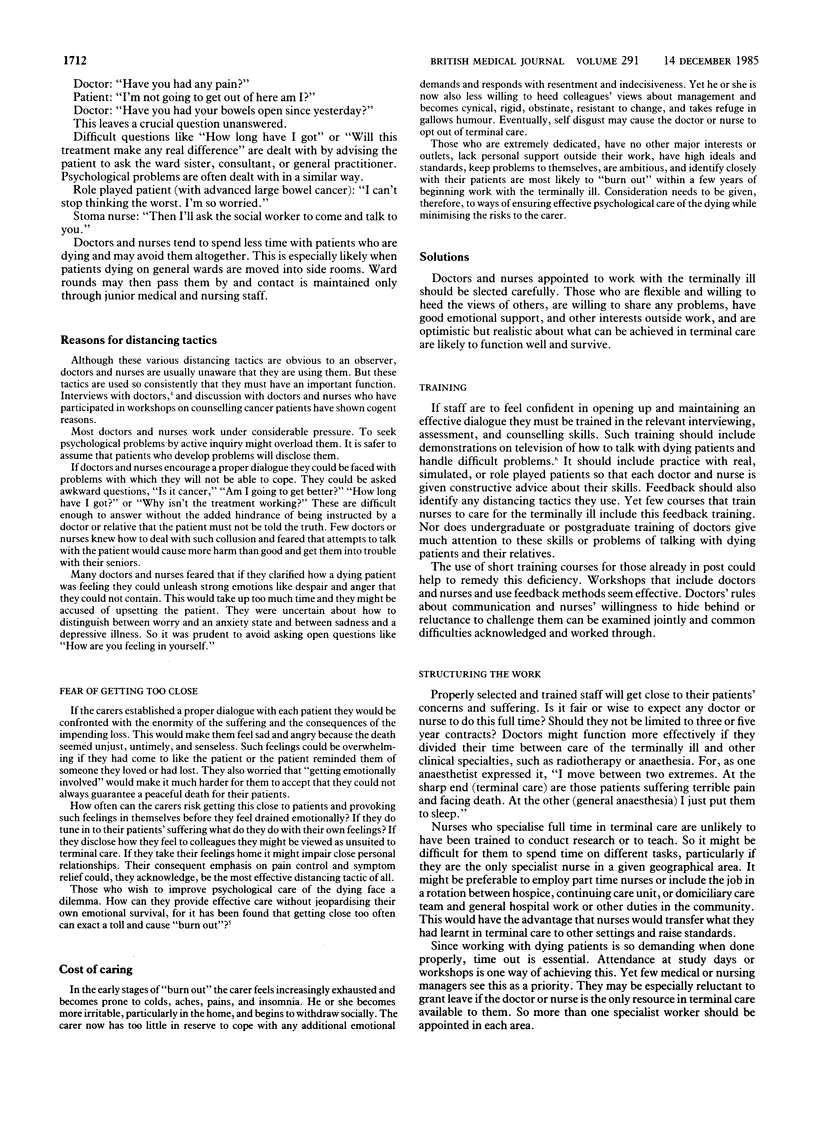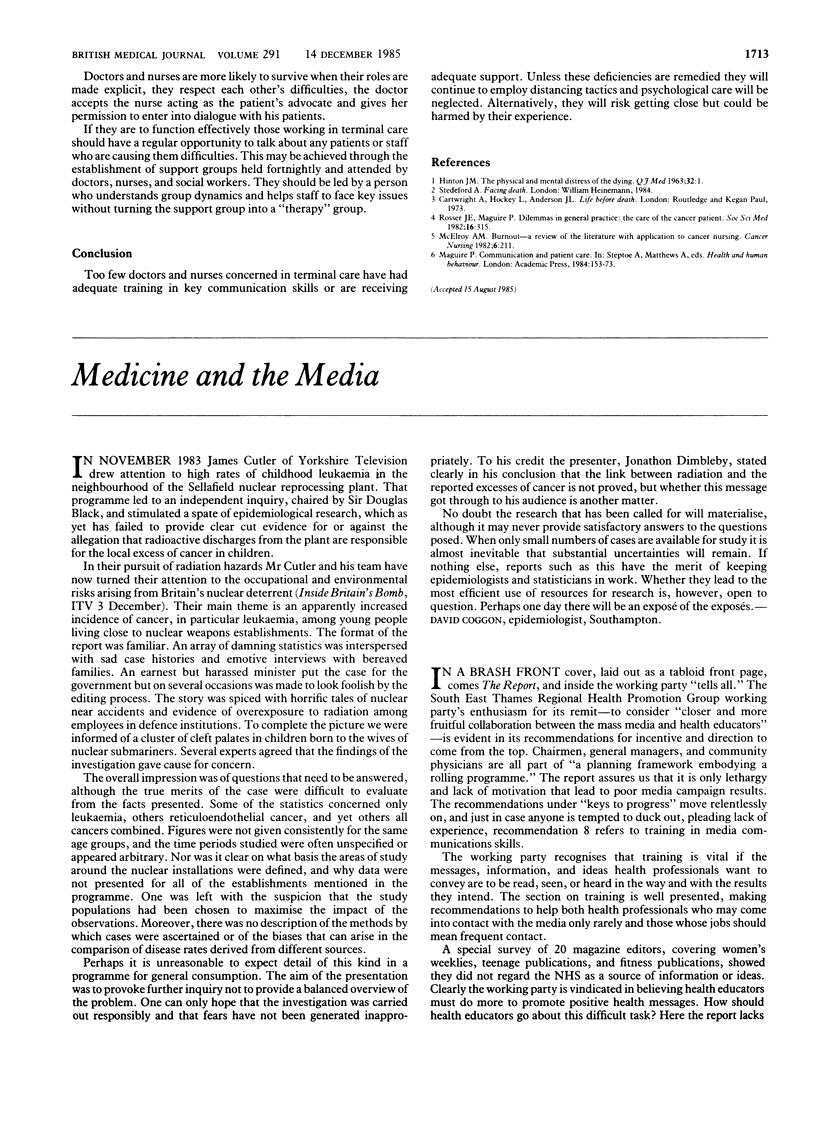Abstract
Direct observation of doctors and nurses talking with real, stimulated, or role played patients suffering from a terminal illness has shown that they consistently use distancing tactics. These prevent them getting close to their patients' psychological suffering and are used to try to ensure their own emotional survival. Since these tactics discourage patients from disclosing their psychological concerns they are a serious barrier to effective psychological care. If those concerned in terminal care are to risk relinquishing these distancing tactics they will need better selection, more appropriate training, regular psychological support, and real opportunities for taking time out.
Full text
PDF


Selected References
These references are in PubMed. This may not be the complete list of references from this article.
- HINTON J. M. The physical and mental distress of the dying. Q J Med. 1963 Jan;32:1–21. [PubMed] [Google Scholar]
- Rosser J. E., Maguire P. Dilemmas in general practice: the care of the cancer patients. Soc Sci Med. 1982;16(3):315–322. doi: 10.1016/0277-9536(82)90341-0. [DOI] [PubMed] [Google Scholar]


